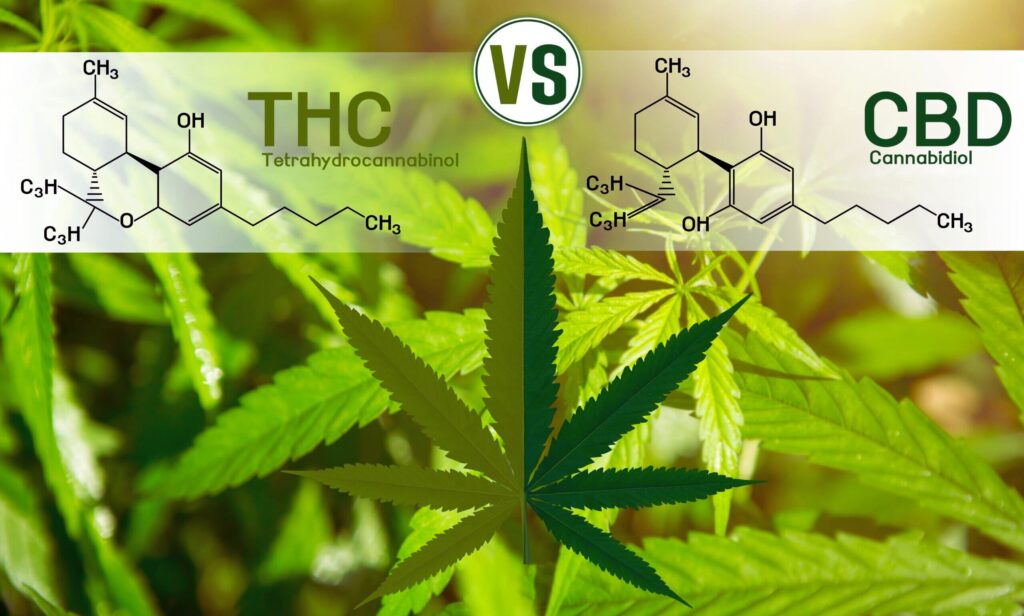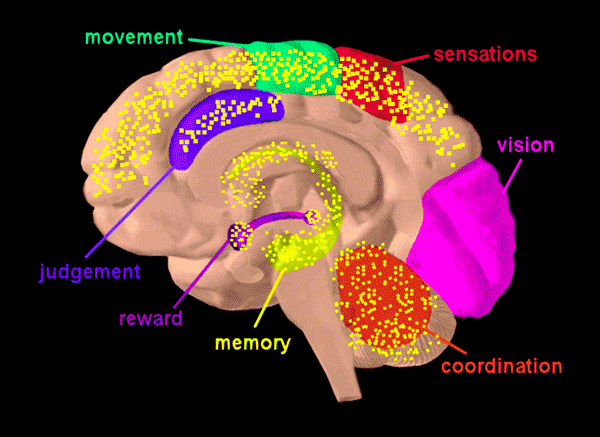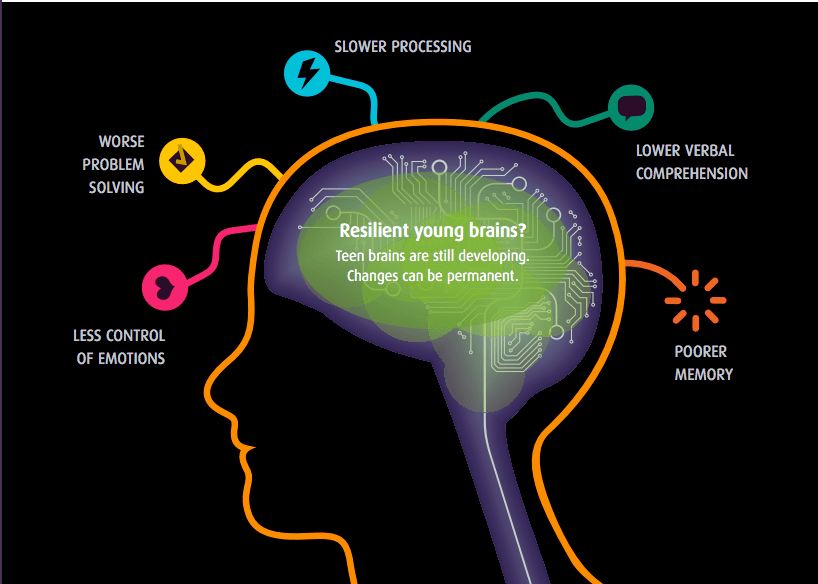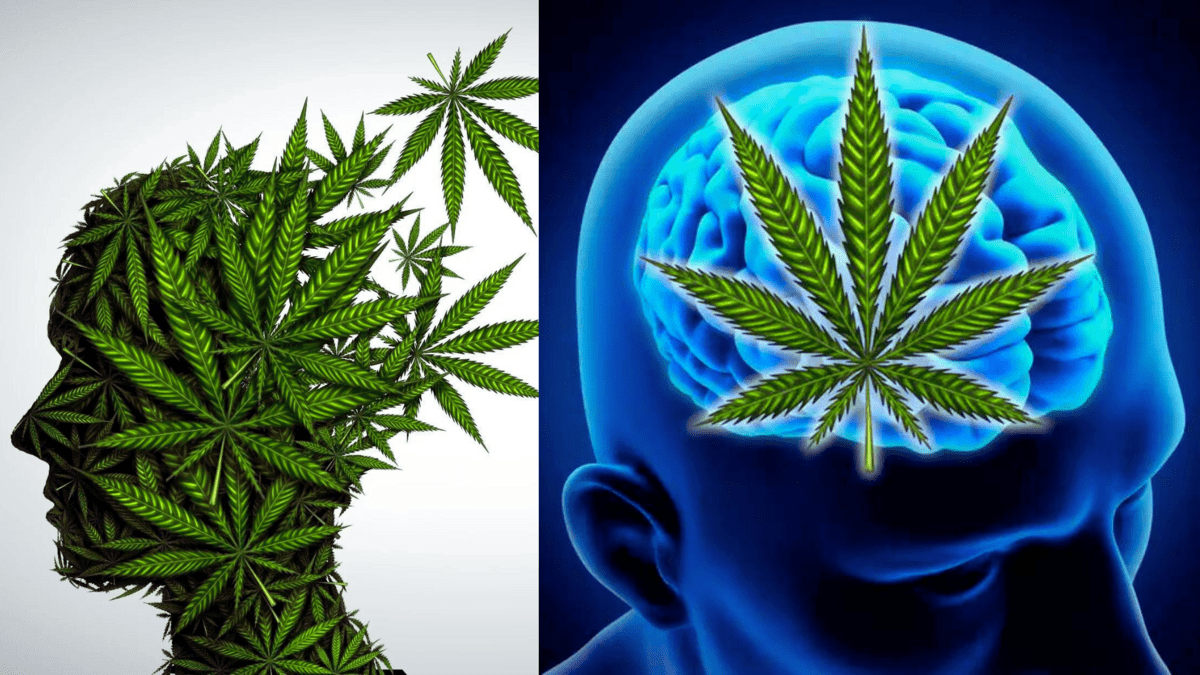Marijuana impacts the brain in various significant ways. THC, the active compound in cannabis, disrupts the endocannabinoid signaling pathways, affecting synaptic plasticity. This disruption leads to changes in the strength of interneuronal connections in the short term. Over time, regular cannabis use can alter brain function, particularly in networks that support working memory, attention, and cognitive processes. Adolescents using marijuana may face implications for academic, social, and occupational functioning in later life, highlighting the potential long-lasting neural changes induced by THC exposure. Cognitive tests have shown that cannabis users perform more poorly, especially in attention and memory tasks.
A Brief History of Marijuana Use
The history of marijuana use spans thousands of years, originating in ancient times. Evidence suggests marijuana use more than 5,000 years ago in what is now Romania, indicating its long-standing presence in human civilization. Cannabis has been utilized under names such as Vijaya, reaching various parts of the world including Asia, Africa, and ultimately America, reflecting its widespread acceptance and use across cultures. In America, cannabis cultivation dates back to the early colonists, who grew hemp for textiles and rope, showing its economic and practical value. Furthermore, cannabis has been used to treat a vast array of medical and health problems, showcasing its medicinal properties. Throughout history, its use has also been documented for spiritual, emotional, and sometimes recreational purposes, as described by the Greek historian Herodotus.
The Science Behind the Smoke
THC’s Role

Tetrahydrocannabinol (THC), the primary psychoactive component of marijuana, produces its effects by interacting with the brain’s cannabinoid receptors. These receptors are part of the endocannabinoid system, which plays a crucial role in regulating a variety of physiological processes, including mood, memory, and appetite. When THC activates these cannabinoid receptors, it can alter brain function, particularly affecting networks that support working memory, attention, and psychomotor behavior. This results in several well-known effects of cannabis use, such as short-term memory impairment, changes in attention, altered psychomotor behavior, intoxication, and stimulation of appetite. Moreover, THC’s interaction with the endocannabinoid system involves the modulation of naturally occurring neurotransmitters, highlighting the complex relationship between cannabis consumption and the brain’s natural chemistry.
CBD’s Counterpart
Cannabidiol (CBD) and Tetrahydrocannabinol (THC) are both compounds found in cannabis but have distinctly different effects and uses. Despite their similar chemical structures, CBD does not produce the psychoactive effects associated with THC. Instead, CBD is recognized for its potential therapeutic benefits, lacking the high that THC delivers. THC activates the brain’s reward system by attaching to endocannabinoid receptors, leading to the release of dopamine and producing feelings of euphoria and relaxation. In contrast, CBD is known for its anxiolytic and antipsychotic properties, and research suggests it can modulate brain activity in a manner opposite to THC, potentially offering benefits without the psychoactive effects. This difference makes CBD an appealing option for those seeking relief from pain, anxiety, and other conditions without the psychoactive effects of THC.
The Immediate Effects of Weed on the Brain
Enhanced Sensory Perception

Marijuana affects the brain areas responsible for pleasure, memory, thinking, concentration, coordination, sensory, and time perception, leading to altered states of perception and heightened sensory experiences. Users often report that cannabis enhances the taste of food, making it seem more intense and enjoyable, and music may sound more profound or emotionally engaging. While not causing true hallucinations like some hallucinogenic drugs, cannabis can distort sensory perception, potentially making experiences seem more vivid or altered from reality. The subjective effects include a heightened sensitivity of the senses, along with alterations in higher functions such as thought, memory, and spirituality. This sensory enhancement is accompanied by changes in memory, reasoning, and information processing, indicating a trade-off between heightened sensory experiences and cognitive functions.
Memory Maze
Research indicates that marijuana can have a notable impact on memory, particularly affecting short-term memory and cognitive functions. The primary psychoactive component in cannabis, THC, is associated with a decrease in short-term memory performance, as higher concentrations of THC have been linked to reduced performance in memory tasks. This disruption in short-term memory is attributed to marijuana’s effects on working memory, impairing the ability to retain and use information in the short term. Furthermore, cannabis intoxication has been shown to negatively affect basal cognitive functions, such as episodic memory and attentional processes, impacting both short-term and potentially long-term cognitive functions.
While the effects on memory consolidation, learning, and related brain functions like long-term potentiation (LTP) and long-term depression (LTD) further underline the complex relationship between cannabis use and memory processes, cannabis use can produce short-term problems with thinking, memory, and learning, with potential implications for long-term cognitive health.
Mood Swings and Marijuana
Cannabis has been shown to significantly influence emotions and mood, with effects varying widely among individuals. The main psychoactive component of cannabis, THC, stimulates parts of the brain associated with pleasure, such as those that respond to food and sex, which can result in feelings of euphoria. However, marijuana use, especially frequent or daily use, has also been associated with an increase in mental health issues, including feelings of anxiety and paranoia.
Research has found that cannabis can impact the recognition and processing of human emotions such as happiness, sadness, and anger. Furthermore, studies indicate that cannabis use is linked with an increased number of depressive symptoms, including anhedonia (loss of interest in activities) and changes in body weight due to altered emotional states. Additionally, emotion dysregulation—difficulty in controlling or regulating emotional responses—has been reported among cannabis users, suggesting a complex relationship between cannabis use and mood disorders.
The Long-Term Impact
Prolonged marijuana use has been linked to several significant changes in brain structure and function. Accumulating evidence suggests that regular cannabis use can alter brain function, particularly in networks that support working memory, attention, and cognitive processes. Long-term exposure to THC, the main psychoactive component of cannabis, leads to neural changes that affect a wide range of cognitive processes, and these changes have been observed to be long-lasting.
Additionally, research indicates that compared to non-users, chronic marijuana users show alterations in brain structure, especially in areas related to memory and emotion, as measured by fractional anisotropy. However, the long-term effect of cannabis on cognition is less well established, with recent meta-analyses reporting residual effects of cannabis use that may affect cognitive function.
Research continues to explore the cognitive effects in midlife of long-term cannabis use, aiming to provide a clearer understanding of its impact.
Cognitive Consequences
Research indicates that long-term marijuana use can have several cognitive consequences. It impairs cognitive functions on various levels, from basic motor coordination to complex executive functions such as memory, attention, and decision-making. Specifically, studies have shown that cannabis use is associated with deficits in memory recall, pointing towards its impact on the brain’s ability to store and retrieve information.
While the acute effects of cannabis intoxication include short-term impairments across several cognitive domains, such as learning and memory, the long-term residual effects on cognitive functioning are less well established. However, recent meta-analyses and studies suggest that there might be lasting cognitive effects associated with long-term, heavy cannabis use, particularly in midlife, though further research is necessary to fully understand these impacts.
Mental Health and Marijuana
Research consistently demonstrates a significant link between marijuana use and various mental health issues. Cannabis use has been associated with the earlier onset of psychosis, increased symptom severity, and higher rates of relapse in individuals with mental illnesses. Additionally, higher-potency cannabis use is consistently linked to poorer mental health outcomes, including an increased risk of psychosis among users.
Moreover, a growing body of evidence suggests that marijuana use among young adults can be linked to severe mental health issues such as schizophrenia, bipolar disorder, depression, and anxiety. This includes an increased risk of suicidal thoughts, suicide attempts, and suicide. Despite these findings, further research is needed to fully understand the nature of these relationships, including the impact of cannabis use frequency, potency, and the individual’s mental health history.
Weed and the Developing Brain
A Vulnerable Age

Young people are particularly susceptible to the effects of marijuana due to the ongoing development of their brains. Marijuana use in adolescence can lead to a range of cognitive and mental health issues, including neurocognitive disadvantages, such as difficulties with attention, memory, and learning. The adolescent brain is in a critical phase of development, and the introduction of substances like marijuana can disrupt neural pathways and brain maturation.
Furthermore, marijuana use during these formative years has been linked to mental health problems, such as depression, social anxiety, hallucinations, and paranoia. The effects can extend beyond immediate health issues, potentially leading to long-term consequences on the individual’s emotional and psychological development.
Peer pressure and the portrayal of marijuana in media also play significant roles in influencing a teenager’s decision to use marijuana, often underestimating the potential risks associated with its consumption during this vulnerable stage of life.
Potential Long-Term Effects
The long-term consequences of early marijuana use predominantly affect cognitive processes and mental health. Studies and research findings indicate that prolonged exposure to THC, the psychoactive compound in marijuana, can lead to neural changes that affect attention, memory, processing speed, and cognitive abilities. These effects are often subtle but long-lasting.
Contrarily, some findings suggest that the dramatic, long-lasting effects on brain structure and function previously attributed to cannabis may not be as severe as once thought, indicating the need for further research to fully understand the extent and permanence of these impacts.
Moreover, marijuana use, especially starting at a young age, has been associated with mental health issues such as depression, social anxiety, suicidal thoughts, attempts, and completed suicides. In animal models, cannabinoids have disrupted important neural processes, leading to cognitive and behavioral abnormalities, suggesting potential parallels in humans.
Debunking Myths and Misconceptions
Addiction and Dependency
Marijuana addiction, also known as cannabis use disorder, is a real and significant concern. Studies suggest that approximately 9% of marijuana users become dependent on the substance. This risk increases to about 17% for those who start using marijuana in their teens. Another estimation indicates that the likelihood of becoming addicted to cannabis is around 10%. More recent data implies that as many as 1 in 5 marijuana users may struggle with dependency. This condition, cannabis use disorder, is increasingly recognized and documented within the medical community. It’s crucial to acknowledge the reality of marijuana addiction and the challenges those affected often face in seeking help and support.
The Gateway Drug Theory
The “gateway drug” theory suggests that marijuana use can lead individuals to experiment with more dangerous drugs. However, this theory remains controversial and is not universally accepted. Some researchers propose that individuals predisposed to drug use might start with substances like marijuana simply because it is more accessible. The hypothesis has been tested, with studies indicating a correlation between early marijuana use and later experimentation with harder substances such as opioids, especially among adolescents. Yet, the causal relationship is debated, with other factors such as the legality of substances and individual vulnerability playing significant roles. Research shows a significant number of individuals who abuse substances had tried marijuana initially, supporting the gateway theory to some extent.
Towards a Balanced View
Medical Marijuana: Pros and Cons
Medical marijuana has been a subject of extensive research and debate. The potential therapeutic benefits include seizure reduction, chronic pain relief, muscle spasms management, and anxiety alleviation. Studies indicate that CBD, a nonintoxicating compound in cannabis, can effectively quell anxiety. Patients using medical cannabis have reported improvements in health-related quality of life over time.
However, there are significant drawbacks to consider. The rapid onset and easy titration benefits come with the risk of dependency and potential mental health implications, especially when smoked. The scientific rigor and regulatory oversight of cannabis as a therapeutic remains lacking, leading to criticisms of it being touted without sufficient evidence for various ailments. Moreover, while it offers some benefits, the overall impact of marijuana on pain, sleep, anxiety, and other conditions needs more definitive research to understand fully.
Legalization and Research Opportunities
The legalization of cannabis opens numerous pathways for enhanced research and a deeper understanding of its effects. Legalization removes barriers to research, facilitating more comprehensive and systematic studies. This can lead to a better understanding of both the therapeutic benefits and individual health harms associated with cannabis use. Legalized environments offer the unique opportunity to study cannabis use in naturalistic settings, providing insights into its effects on public health, social acceptance, and possible shifts in use patterns, especially among adolescents due to increased availability and changing social norms. Furthermore, legalization can help delineate the substance’s impact on crime rates, tax revenue, criminal justice expenditures, and overall public health, contributing to more informed policy decisions. However, it’s crucial to navigate these opportunities carefully, as legalization also presents risks, such as increased use and dependency among adults, emphasizing the need for ongoing and rigorous research.
Conclusion
The discourse around medical marijuana, its benefits, and potential drawbacks is multifaceted, touching upon mental health, cognitive processes, and societal impacts. Medical marijuana has been linked to both therapeutic advantages and concerns regarding mental health, including potential risks for mood disorders and cognitive function. While it can offer relief for various conditions, its use necessitates a nuanced understanding of its effects on mental well-being, cognition, and overall health. The balance between its therapeutic potential and the risks associated with its use underscores the importance of continued research and informed discussion. Ultimately, the evolving landscape of medical marijuana calls for comprehensive studies to guide its safe and effective use in medical practice, considering both its benefits and potential drawbacks.
Read also: What Can You Eat on Good Friday?
FAQs
Q. Can weed permanently damage your brain?
While the research is ongoing, heavy, prolonged use, especially starting in adolescence, may lead to lasting changes in brain function and structure.
Q. Is CBD safe for the brain?
CBD is generally considered safe and can have beneficial effects, including neuroprotective properties. However, more research is needed to fully understand its impacts.
Q. Does marijuana use lower IQ?
Studies suggest that heavy use, particularly in teenagers, can lead to a decline in IQ over time, though the research is contested.
Q. Can marijuana improve creativity?
Some users report enhanced creativity from cannabis use, potentially due to its effects on mood and perception. However, evidence is anecdotal, and effects can vary widely.
Q. Is marijuana addictive?
Yes, a percentage of users can develop a dependency or addiction to marijuana, with higher risks among those who start using at a young age.




